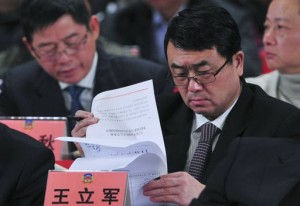Special to WorldTribune.com
The following is from the ‘Inside China’ column for the upcoming edition of East-Asia-Intel.com about the apparent attack on the protege (Wan Lijun) of CCP up-and-comer Bo Xilai by his opponents which include President Hu Jintao.
Internecine bickering in elite Chinese politics, while full of skullduggery and back-stabbing, is often wrapped in secrecy. No longer.

As the Chinese Communist Party (CCP) gets ready for a once-in-a-decade generational change at its 18th Congress this October, the bloody swordplay has gotten into the open.
The focus of the intrigue is the battle to get into the nine-member Politburo Standing Committee (PBSC), which is China’s highest ruling council.
Chongqing Party Secretary Bo Xilai, 62, who is already an ordinary Politburo member, has the past two years broken party protocol by deploying a variety of colorful strategies to raise his national profile. …
Then his opponents, who apparently include President and CCP General Secretary Hu Jintao and Premier Wen Jiabao, used a standard ploy to torpedo the promotion prospects by the Machiavellian “King of Chongqing”: shooting down one of his key protégés on alleged corruption charges. …
What is even more bizarre is that since early this week, Chinese Cyberspace has been thick with rumors that Wang had sought political asylum at the American Consulate in Chengdu, the capital of Sichuan Province which is about ten hours’ driving distance from Chongqing.
On Wednesday U.S. time, the State Department spokeswoman Victoria Nuland confirmed that Wang did visit the Chengdu consulate on Monday.
“The meeting was scheduled, our folks met with him, he did visit the consulate and he later left the consulate of his own volition,” she said.
Read complete article in the new edition of East-Asia-Intel.com, published Feb. 11.

You must be logged in to post a comment Login